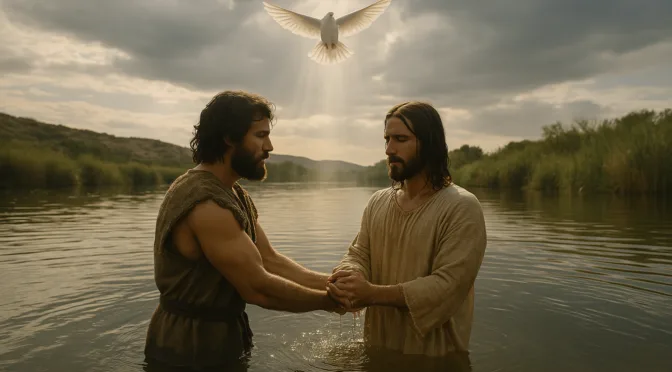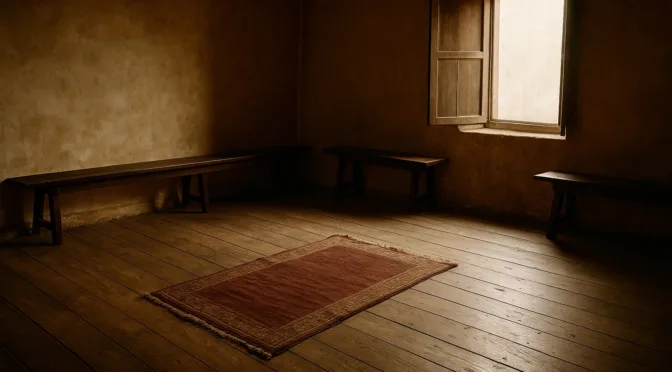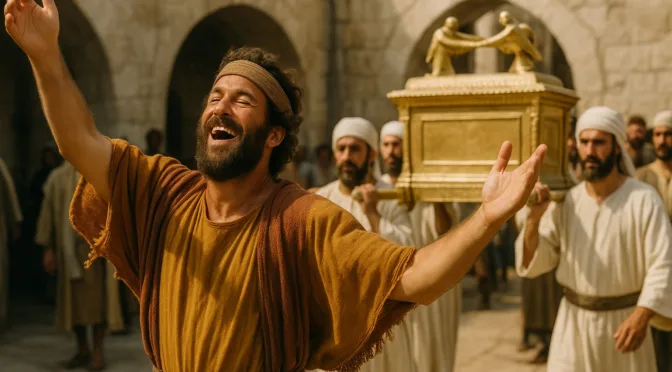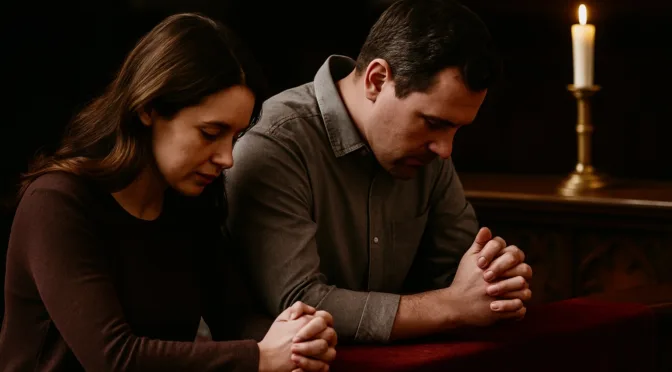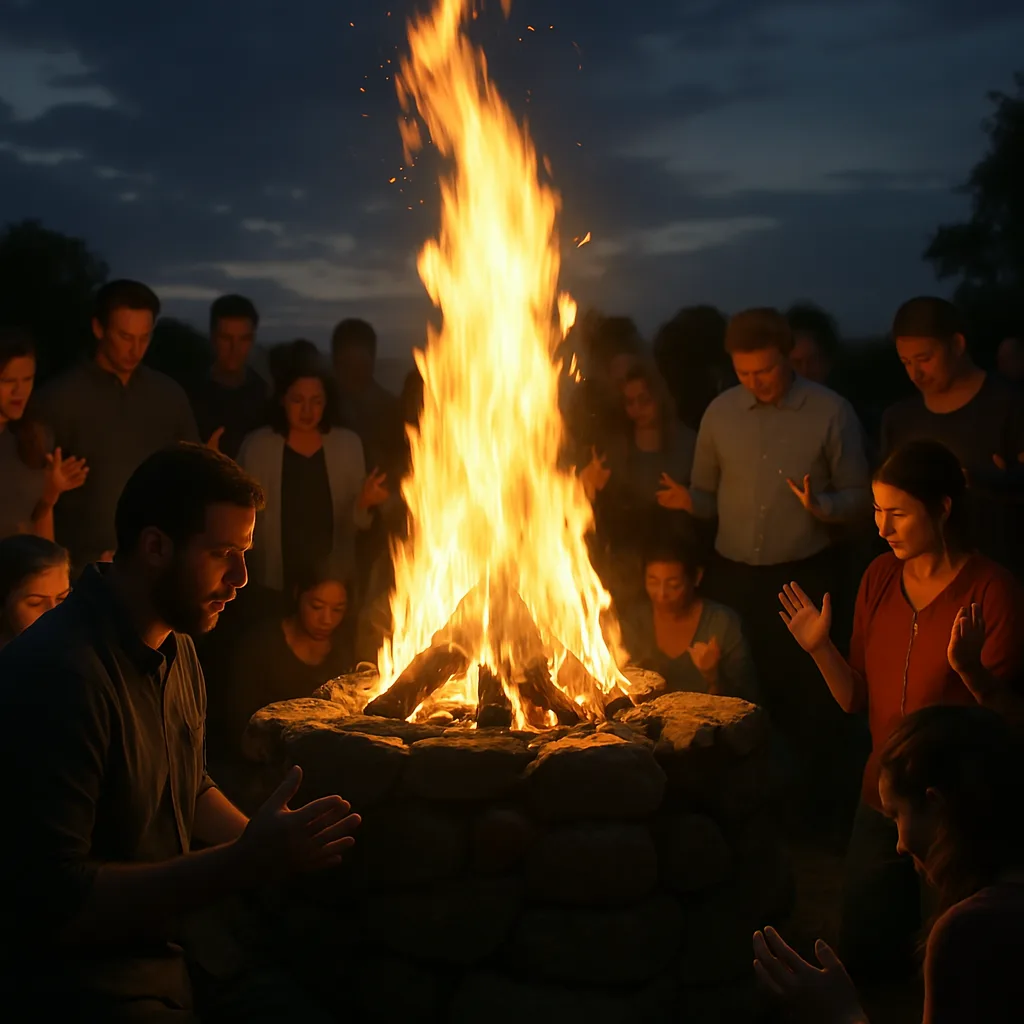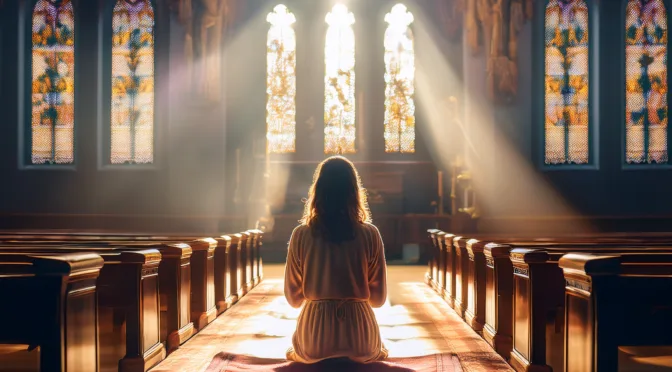Let God Be Glorified
Come and hear, all who fear God, and I will tell what He has done for my soul (Psalm 66:16, NASB).
This is the voice of one who has tasted the mercy of El Elyon and cannot remain silent. He does not draw attention to himself, but to the power of God. Every true testimony flows from this fountain—it glorifies God alone, not the one who speaks.
The Apostle John, who leaned against Yeshua’s chest and saw the glory of the Word made flesh, heard these words from Heaven: They overcame him because of the blood of the Lamb and because of the word of their testimony (Revelation 12:11, NASB). Notice where the victory rests. Not in strategy, eloquence, or charisma—but in the Lamb and what He has done. The testimony is not a platform for self—it is a declaration of God’s faithfulness and mercy.
Even our Savior warned, Beware of practicing your righteousness before men to be noticed by them (Matthew 6:1, NASB). The danger is not just in falsehood, but in misdirected truth—when we say the right things for the wrong reasons, and shift the spotlight onto ourselves.
Let Boasting Die at the Cross
The Apostle Paul could have boasted. His résumé was unmatched—zealous, learned, bold. Yet he said, Far be it from me to boast, except in the cross of our Lord Jesus Christ (Galatians 6:14, NASB). The cross is where all pride dies. It is where we remember that we were nothing, and He gave us everything. Any story that begins with “I did” must be reexamined. Let every true testimony begin with “God moved.”
Paul reminded the Corinthians, So then neither the one who plants nor the one who waters is anything, but God who causes the growth (1 Corinthians 3:7, NASB). We are nothing more than vessels—fragile, breakable, and utterly dependent on El Shaddai to fill us. Testimonies should cause awe, not applause. They should humble, not elevate. If we speak of answered prayers or miracles, let us speak as those trembling in the presence of a holy God.
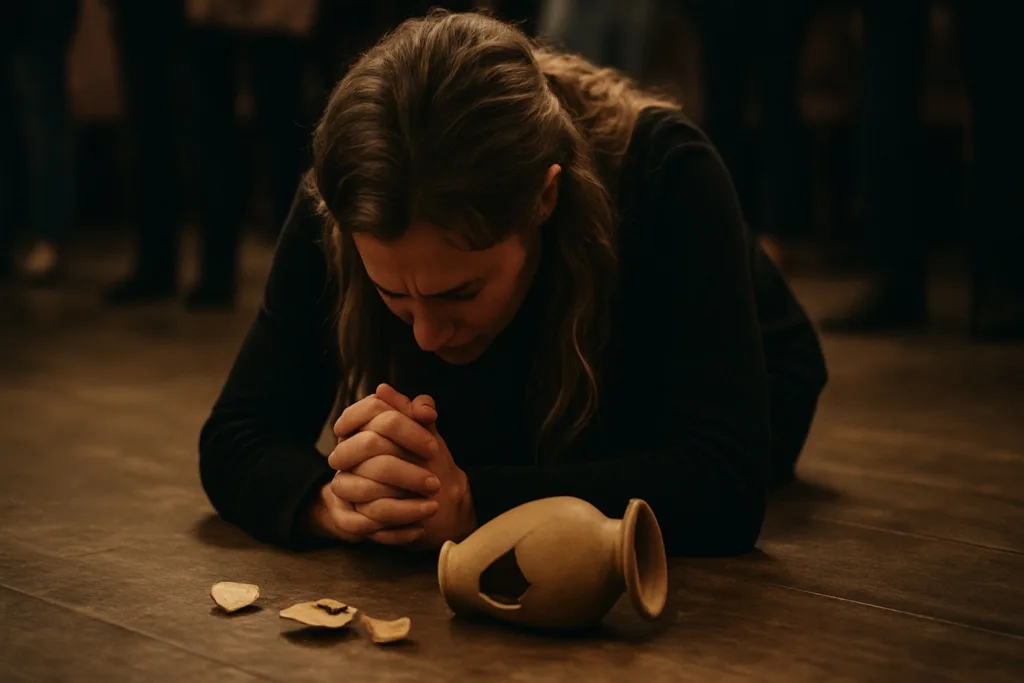
Where Is the Power We Preach?
We have the Word. We memorize the verses. We know what to say. But where is the power? Where is the Presence? We talk about revival, but do we carry it? Yeshua said:
I assure you and most solemnly declare to you that anyone who believes in Me [as Savior] will also perform the same actions as I do. Moreover, they will accomplish even greater feats in scope and reach, for I am going to the Father. And I will do whatever you ask in My name [as My representative], this I will do, so that the Father may be glorified and celebrated in the Son. If you ask Me anything in My name [as My representative], I will do it (John 14:12–14, AMP).
We love to quote verse 15—If you [really] love Me, you will keep and obey My commandments—but are we living verses 12 through 14? We say we follow Him, but where is the fruit? Where is the unmistakable evidence of His power and Presence moving through us?
If we are honest, we must ask: Have we crafted denominations, doctrinal statements, and creeds to soothe our lack of faith? Are we building altars of reason because we have forgotten the fire of God? When Peter was in the Upper Room before Pentecost, he probably cried out, “Lord, we have nothing left but You.” Have we reached that place? Have we truly died to self?
Truly Dying to Self: A Forgotten Cry
What does it mean to truly die to self? We speak of it often, but do we live it? Picking up our crosses daily sounds poetic until obedience costs us something. Listening to His voice is inspiring until He asks us to release our comfort, our pride, or our reputation. Is there anyone alive today who can say, “I have been crucified with Christ, and it is no longer I who live, but Christ lives in me” (Galatians 2:20, NASB)?
If our hearts were truly right with God, these things would happen. Miracles would follow our prayers. Deliverance would spring from our declarations. Revival would not be a hope—it would be a holy eruption. The reason it doesn’t happen is not that God has changed. He is being true to His Word. He tests hearts. He purifies motives. He waits for a people who will make Him the center of their testimony, not themselves.
We need to keep pressing into Him, asking Him to search us and refine us. We must return to the altar, not to tell God what we’ve done, but to ask Him to reveal our motives so that we may be pure vessels. Our testimonies should reflect the cry of John the Baptist: He must increase, but I must decrease (John 3:30, NASB).

Let Testimonies Burn with His Glory
Even our best obedience is not a trophy—it is a response. For we are His workmanship, created in Christ Jesus for good works, which God prepared beforehand so that we would walk in them (Ephesians 2:10, NASB). We are not the authors of greatness. We are the canvas upon which the Master Artist paints His glory.
Let every testimony burn with the truth: It was God. All of it. The mercy. The healing. The change. If He used us, it was not because we were worthy—it was because He is good.
Do not share to impress. Share to exalt. Let your testimony be a trembling offering that points upward, not inward. Speak not of how much faith you had, but how faithful El Olam was to you. Let the story glorify the Name above all names—Yeshua, the Lamb who was slain.
Let Us Pray
O El Shaddai, Mighty and All-Sufficient One,
We come before You with broken hearts, confessing how often we have spoken to be seen, shared to be praised, and testified to exalt ourselves. Forgive us, Lord. Purify our hearts, cleanse our lips, and strip away every hidden motive that does not glorify You.
Teach us what it means to truly die daily—to applause, to recognition, to the craving for man’s approval. Let our testimonies rise like holy incense—fragrant only because You have been faithful. Let them carry the weight of Your glory, not the weight of our names.
We lay our words at Your feet. Sanctify them. Let every syllable exalt the Name above all names—Yeshua, our Redeemer. Let our stories become songs of Your mercy, drawing hearts not to us, but to Your throne.
Burn away pride, expose every imitation, and silence the flesh. Let the fire of Your Spirit purify our witness until only Your power remains. And when we speak, let the world see not us, but You living through us.
We join with the saints, with the seraphim, and with all creation in one cry:
You alone are worthy.
Amen.
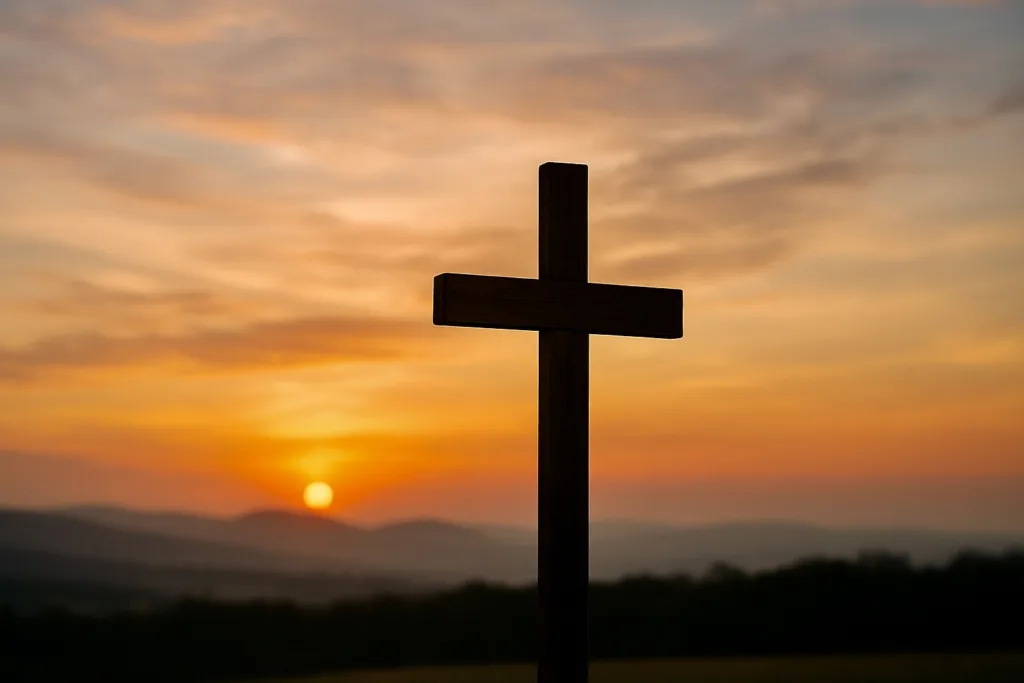
⸻

